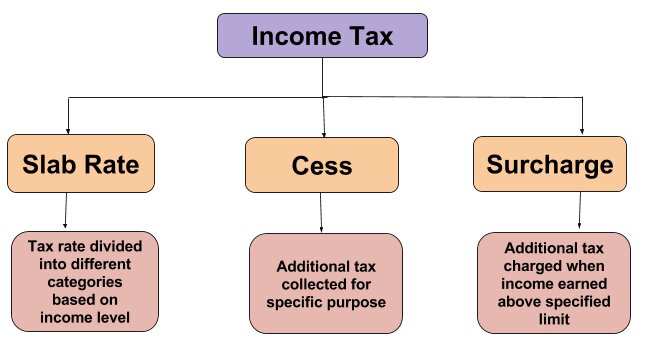Important Facts For Prelims
Important Facts For Prelims (29th May 2019)
- 29 May 2019
- 7 min read
Kerala to impose Flood Cess
Kerala government will impose an additional cess of 1% on goods and services with GST slab above 5% from June 1.
- Flood cess is aimed at raising the funds to rebuild the state, which was struck by devastating floods in August 2018.
- The funds raised will be added to the Chief Minister’s Distress Relief Fund and to re-routed loan amounts from international financial agencies like World Bank and Asian Development Bank (ADB) for financing Rebuild Kerala projects.
- Will be imposed for 2 years starting from 1 June.
- Cess is applicable only on those goods and services with a GST slab above 5%.
- Will not be applicable on railway services, movie tickets.
- Kerala is the first state to impose additional cess on GST after it was implemented.
- In order to minimise the burden of Cess, there will be no additional tax on products sold by small traders, with an annual turnover of less than Rs 1.5 crore.
- The cess will be applicable only on transactions within Kerala and not interstate transactions.
- The government has also decided to levy 0.25% as flood cess on gold and silver.
- CESS is tax on tax and usually levied for the specific purposes.
- Once its purpose is solved they are stopped. Unlike the other taxes that have to be shared with other Indian states, the centre keeps the entire amount raised from the Cess.
- Cess fund is to be kept in the Consolidated Fund of India, before being transferred to the dedicated accounts.
- Types of Cess are:
- As of now some cess are being subsumed under the GST with effect from 1 July 2017, like Krishi Kalyan Cess, Swachh Bharat Cess,Clean energy cess, Cess on Tea, sugar and jute etc.
- Currently there are 6 cess continued to be levied by the centre government namely, Primary Education Cess, Secondary Education Cess, Cess on Crude Petroleum Oil Road Cess NCCD on tobacco and tobacco products,Education cess on imported goods.
Social and Labor Convergence Programme
The 'Social and Labor Convergence Programme (SLCP)', an initiative to have a standard-neutral, converged assessment framework for the textile and clothing industry.
- It is a mission to implement a Converged Assessment Framework (CAF) that supports stakeholder’s efforts to improve working conditions in global supply chains.
- The CAF consists of a Data Collection Tool, a Verification Protocol and a Verifier Guidance document.
- It is compatible with existing audit systems and codes of conduct. The same data set can be used by a wide range of stakeholders. It eliminates the need for repetitive audits to be carried out on the same facility.
Objectives
- Reduce audit fatigue: avoid duplication and reduce the number of social & labour audits by replacing current proprietary assessment tools
- Increase the opportunity for greater comparability of social & labour data
- Redeploy resources towards improvement actions
- To improve the working conditions in textile units by allowing resources that were previously designated for compliance audits to be redirected towards the improvement of social and labour conditions.
- Build mutual trust and respect, measure and understand working conditions and improve those conditions over time.
Veer Savarkar Jayanti
On 28 May, The Birth Anniversary of Veer Savarkar, PM of India paid Tribute to the Freedom fighter,Veer Damodar Savarkar.
About Veer Savarkar:
- VD Savarkar or Vinayak Damodar Savarkar was born on May 28, 1883 in Bhagur, a village near Nashik in Maharashtra.
- Savarkar was associated with the India House and founded student societies like Abhinav Bharat Society and the Free India Society.
- He was sentenced to 50 years and was sent to the Cellular Jail in the Andaman and Nicobar Islands in 1911. He was released in 1921.
- Savarkar was arrested in 1910 for his connections with revolutionary group India House.
- Veer Savarkar was a freedom fighter, politician, lawyer, writer, social reformer and formulator of the Hindutva philosophy.
- In 1923, he founded the word "Hindutva" and said that India belonged to only those who had it as their holy land and their fatherland.
- Veer Savarkar founded the two-nation theory in his book Hindutva calling Hindus and Muslims two separate nations and In 1937, Hindu Mahasabha passed it as a resolution.
- The airport at Port Blair in Andaman and Nicobar's capital was renamed Veer Savarkar International Airport in 2002.
Surface Ozone Pollution
According to a forecast by the System of Air Quality and Weather Forecasting and Research (SAFAR), with rising temperatures, surface ozone pollution is expected to increase in Delhi in the next three days.
- Ozone, a key component of photochemical smog, is formed by a complex reaction between nitrogen dioxide and hydrocarbons in the presence of sunlight.
- Photochemical smog is produced when pollutants from the combustion of fossil fuels react with sunlight. The energy in the sunlight converts the pollutants into other toxic chemicals. In order for photochemical smog to form, there must be other pollutants in the air, specifically nitrous oxides and other volatile organic compounds (VOCs).
- Ozone is considered to be a criteria pollutant in the troposphere — the lowermost layer of the atmosphere — but not in the upper atmosphere, where it occurs naturally and serves to block harmful ultraviolet rays from the Sun.
- When temperature increases, the rate of production of surface ozone also increases. Surface Ozone can lead to cough, shortness of breath, throat pain in the short term and cause corrosion of linings of lungs and make lungs vulnerable to further infections in case of long-term exposure.







